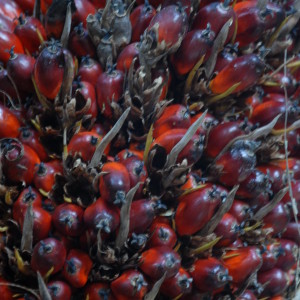Perils of Spreading False Claims about Palm Oil
 Dr Jean Graille, a world renowned biotechnology expert who focuses on fats and lipids, completed his studies at the Ecole Nationale Supérieure de Chimie de Marseille [National Chemical Engineering Institute of Marseilles]. He began working as a researcher at the Institut des Corps Gras [Institute for Fats and Oils] before continuing his career in the Agribusiness Programme of CIRAD, where he managed the team for ‘Food and Non-Food Substances – Lipid Technology Sciences’. Dr Graille won the Chevreul medal in 1997 and went on to receive the Kaufmann Prize in 1999 – the first French person to do so.
Dr Jean Graille, a world renowned biotechnology expert who focuses on fats and lipids, completed his studies at the Ecole Nationale Supérieure de Chimie de Marseille [National Chemical Engineering Institute of Marseilles]. He began working as a researcher at the Institut des Corps Gras [Institute for Fats and Oils] before continuing his career in the Agribusiness Programme of CIRAD, where he managed the team for ‘Food and Non-Food Substances – Lipid Technology Sciences’. Dr Graille won the Chevreul medal in 1997 and went on to receive the Kaufmann Prize in 1999 – the first French person to do so.
In an interview, he addresses the prevailing misinformation among some policy makers and consumers in France, Belgium and Switzerland in relation to oils and fats, in particular palm oil.
In your opinion, do the French have an adequate understanding of oils and fats?
Absolutely not! Like all global consumers, the French are far from having a good understanding of foods that are commercially available to them, and fats and oils are no exception.
Two statements are often made to illustrate this point:
- ‘Butter contains more fat than sunflower or canola oil.’
Not true! Butter contains 20% water. It is a water-in-oil emulsion containing 80% fat, whereas sunflower and canola oils contain 100% fat.
- ‘Olive oil contains more fat than hazelnut oil.’
Wrong! Both consist of 100% fat.
However, it is interesting to note that both beliefs come from sensory perceptions and have to do with the appearance of these products and how they feel in our mouths. Beliefs based on sensory perceptions have nothing to do with scientific evidence.
‘Tobacco and alcohol are deadly; it is dangerous to consume too much sugar; you need to exercise and eat 4 to 6 servings of fruit or vegetables per day and avoid over eating too much fat; oils containing omega 3 and 6 are healthy, etc’ – these are accurate claims supported by scientific research.
The following two beliefs are not backed by scientific evidence and lead us toward misinformation:
- ‘Palm oil is responsible for cancer and cardiovascular diseases because it contains a lot of saturated fats.’
- ‘Palm kernel oil is also responsible for these types of disease.’
Unfortunately, consumers assimilate this information; and although few of them read the labels on food items on the shelves, these types of claims grow to unfairly demonise an entire segment of the agro-food industry. The idea that something may damage your health is a powerful factor in the spread of false information.
Two Belgian Senators, Sabine de Bethune and Cindy Frassen, have proposed to limit the content of palm oil in food products to 2gm per 100gm. They have argued that using palm oil is as dangerous as using trans fats. Is there any evidence for this claim? What negative effects could there be from the Senators’ proposal to limit palm oil?
There is no scientific evidence that supports the Honourable Senators’ comments. However, there is plenty of research and global scientific literature that demonstrates that the regular consumption of trans fats is dangerous. Scientific studies all lead to the same conclusion: the consumption of trans fats induces cardiovascular disease and cancer, particularly breast cancer. Palm oil is completely free of trans fats. It contains a balance of saturated and unsaturated fatty acids and its consumption is not linked to any form of cancer.
When the Honourable Senators proposed to limit the content of palm oil to 2%, they were undoubtedly confused with the decision by several EU member-states to limit the content of trans fats in fats and oils; in fact, Denmark has set this limit to 2%.
Note that palm oil is a natural product that does not cause health problems, given its unique chemical structure. Furthermore, palm oil contains Vitamin E and is the most significant source of tocotrienols, which offer protection against cancer, and is pro-Vitamin A.
Finally, do not forget that we need saturated fats as our cell membranes must be very fluid in order to allow waste to exit and nutrients to enter our cells. Mother Nature designed the lipid composition of cell membranes to include a precise and smart ratio between saturated, monounsaturated and polyunsaturated fats.
These simple reminders show how sorely mistaken these two Honourable Senators are in tabling such proposals and engaging in scare-mongering.
Another Belgian senator, Muriel Targnion, has stated that the consumption of palm oil increases the risk of breast cancer. Is this true?
Absolutely not! Senator Targnion makes an erroneous statement when citing the joint report by the Institut National de la Santé et de la Recherche Médicale and the Institut Gustave Roussy. The joint report published by these two research bodies finds that trans-oleic acid and trans-palmitoleic acid are suspected of causing cancer – especially breast and colorectal cancer – but Senator Targnion erroneously claims that these fatty acids are found in palm oil.
This is completely false! Like all common vegetable oils, palm oil does not contain trans fats. Only partially hydrogenated (i.e. processed) soybean and canola oils contain trans fats in significant amounts.
It should be pointed out that the trans fats referred to by Senator Targnion are found in products of ruminant origin, in particular in dairy products such as butter, cream and cheese, as well as in the fat found in meat. These trans fats are a result of natural hydrogenation caused by the anaerobic microbial flora inside the stomach of ruminants.
What Senator Targnion should have pointed out was that palm oil is the only oil that contains tocotrienols, which are believed to offer strong protection against cancer, especially breast cancer. Many medical research studies have been performed on tocotrienols from palm oil and all have demonstrated good protection against cancer, including breast cancer. Some studies have even shown a clear association between palm oil consumption and cancer remission.
Swiss MP Dominique de Buman claims that rapeseed oil produced in Switzerland is healthier than palm oil. Is this true? He believes that rapeseed oil and butter could easily replace palm oil in food products in Switzerland. What are the benefits of using palm oil, and what are the potential risks for Swiss consumers of replacing palm oil in their food?
His statement is not scientifically acceptable. The best option for consumers is to make use of a range oils and fats to ensure a balanced intake of saturated fats as well as omega 9, omega 6 and omega 3 fats.
In fact, all fats are not equal and all have their advantages and disadvantages. Rapeseed oil contains all types of fatty acids and in particular linolenic acid (omega 3), which is also found in soybean oil and oils derived from nuts. However, this makes it sensitive to oxidation and heat. This is why scientists advise to consume this oil fresh because the combination of oxidative and thermal effects generates unnatural toxic molecules.
This is also why it is recommended to use a far more stable oil, like palm oil, for frying and to prolong the shelf-life of foods. Palm oil also has numerous other qualities; it is a ‘naturally hydrogenated’ oil that is free of trans fats and is free of genetically modified organisms (GMOs). In addition, palm oil’s unique physical properties make it very attractive for a wide range of food application to accentuate the taste and texture of foods.
The preparation of margarine containing suitable quantities of sunflower oil, rapeseed oil and palm oil is a perfect example of products that offer a balanced intake of the four types of natural fatty acids.
Regarding the comments on butter, on the nutritional level, butter contains many short fatty acids that are quickly metabolised to make energy, but also very long chain fatty acids that have been found to cause cardiovascular problems. The complete replacement of palm oil in food products is unwelcome because it will change the taste of foods and it will also lead to Swiss consumers consuming more dangerous trans fats.
It seems that while MP de Buman wants to stop using certain types of imported products in order to further promote its rapeseed and dairy industries, he has not fully considered the implications of his erroneous statement on the health of Swiss consumers.
In light of the remarks made by Belgian Senators de Bethune, Frassen and Targnion and Swiss MP de Buman, do you think that certain people may be guilty of making alarmist claims regarding palm oil?
Unfortunately, yes. Certain people have taken advantage of their own position to make alarmist claims while certain members of the anti-palm oil lobby have an interest in denigrating the image of palm oil so that other vegetable oils or dairy fats may benefit.
However, this is a dangerous game and may ultimately result in more damage to competing vegetable oils, if a malicious campaign were to be launched against these oils evoking the dangers of GMOs and their inferior yields resulting in the need to deforest 10 times more land to produce comparable amounts. Specifically, soybean has resulted in the loss of 10 times more biodiversity in the Amazon than the cultivation of oil palm.
The Oil Palm, Oct 25, 2015










Leave a Reply